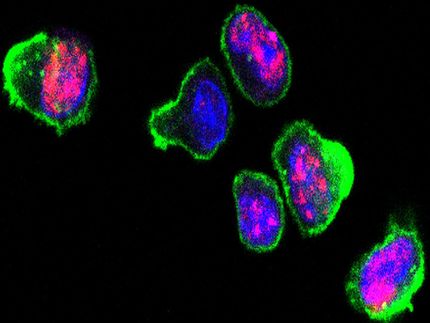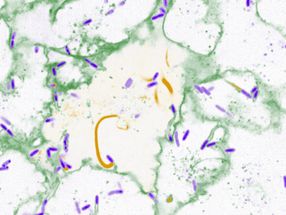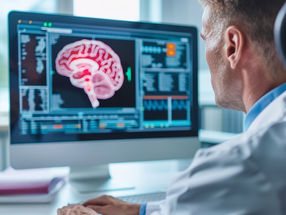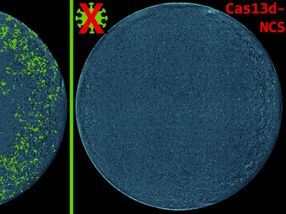Ben-Gurion University of the Negev Alzheimer's Researcher demostrates specific immune response to vaccine
A researcher who is working on a vaccine for Alzheimer’s disease (AD) has demonstrated that it is possible to test and measure specific immune responses in mice carrying human genes and to anticipate the immune response in Alzheimer’s patients. This continuing research at Ben-Gurion University of the Negev could one day lead to specific Alzheimer’s vaccines that reduce plaque, neuronal damage and inflammation associated with the disease.
Amyloid beta-peptide accumulates in the brain of AD patients where it appears to promote neuronal damage. In the article, recently published in the Journal of Immunology, BGU researcher Dr. Alon Monsonego determined that introducing A-beta into the brain triggers a natural immune response which can be detected in humans.
Importantly, the research team showed that the specificity and magnitude of this body response to A-beta depends on certain key genes of the immune system, which are highly polymorphic in the population (this means that except for identical twins, almost each of us has a different combination of genes termed “HLA alleles”).
Furthermore, this research took an unusual approach combining humans and humanized mouse models. “We began with characterizing the genes in humans in a collaboration with the laboratories of Dr. Weiner and Dr. Selkoe at Harvard then did the same study in mice using a mouse model of multiple sclerosis with the laboratory of Dr. Altmann- Imperial College School of Medicine, UK,” Monsonego explains. “We then generated a humanized mouse model of AD, with a specific gene that was present in approximately 30 percent of our study group (HLA DR15 allele). Conceivably, those people that have this gene could receive the same vaccine which will teach a person’s immune system to better fight the disease.”
Monsonego continues, “As in other mouse models of the disease, we show that with aging A-beta aggregates accumulate in brain areas of cognitive functions and stimulate an inflammatory reaction in the brain. However, stimulating an immune response to A-beta in these humanized mice not only resulted in a highly efficient clearance of A-beta (plaque) from the brain, but also in a markedly reduced inflammatory reaction. Furthermore, we were able to predict that the characteristics of immune response in mice were the same as in the humans.
“This study thus provides the basis for developing an individual-based (personalized medicine) immunotherapeutic approach to Alzheimer’s disease since different populations will respond differently to a vaccine based on their genetic background,” Monsonego explains. “Now that we’ve proven we can anticipate the specific responses for several abundant genes in the population, further study is needed to ensure safety and efficacy in our humanized mouse model of AD.”
Most read news
Topics
Organizations
Other news from the department science

Get the life science industry in your inbox
From now on, don't miss a thing: Our newsletter for biotechnology, pharma and life sciences brings you up to date every Tuesday and Thursday. The latest industry news, product highlights and innovations - compact and easy to understand in your inbox. Researched by us so you don't have to.
























































